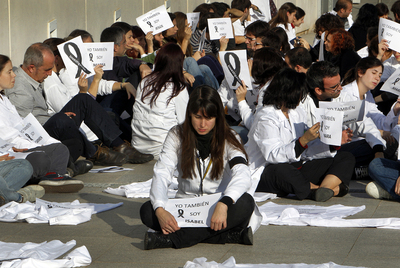
The ERE without agreements with the unions can be legal
The TSJM gives the green light to Unitono's second ERE in less than a year despite the fact that it was a unilateral decision because the company demonstrated continued economic losses and loss of customers.
Justice already supports unilateral EREs as long as the company proves economic losses. This has been established by the Superior Court of Justice of Madrid (TSJM) in a ruling that gives support to companies that present the economic cause required by the labor reform but that until now found that the courts overturned their files alleging that They had not respected the union consultation period, among other issues.
The ruling gives the green light to the ERE of Unitono Servicios Externalizados, a contact center company with nearly 5,000 employees that Sagardoy Abogados has advised with a team led by partner José Luis Fraile.
This ERE that the TSJM now validates is the second carried out by the company in less than a year. The first has also just been endorsed, this time by the Supreme Court.
The TSJ of Madrid understands that there is no bad negotiating faith on the part of the company regarding the initial position of terminating 306 employment contracts and, finally, reducing the count to 213 workers, since the economic cause is proven, as the economic situation worsens in in 2013 and in the first months of 2014, there would be a need to go to a second ERE.
Added to this factor is the termination of certain services by the company's main client, Telefónica, which caused Unitono to have a surplus of workers derived from the terminated contracts in 2014, which is why the existence of a cause was also proven. productive. This termination caused productive imbalance, loss of income and a decline in the company's activity.
The TSJ confirms that the losses of more than 6 million euros credited in 2013 were added to those of more than one million in January and February 2014, when the second ERE judged by the Madrid Court was raised.
Regarding the effect of the termination of the contract with Telefónica, the ruling includes the company's allegations that it produced a surplus of 49 jobs, which was added to the consequences suffered in 2013 when Telefónica began to invoice its distributors for the which until then they provided as a free service, the Unitono SAU service, which led to a drop in the activity of the 57%.
The ruling also rejects the request for annulment maintained by the plaintiff unions CGT and UGT, which alleged that the selection criteria for workers affected by the ERE were not clear enough. The Chamber understands that the workers' representatives were able to find out which group of affected workers was.
Furthermore, it rejects the disproportionate classification of the business measure maintained by the plaintiffs, and resolves by estimating that the reduction from 306 initially affected employees to 213 reflects the company's intention to reduce the negative effects of this decision as much as possible. Thus, he concludes, the reduction can only carry out the necessary and essential adjustment to the real and concrete needs of the company when applying its future forecasts on the date on which the ERE was put into practice.
"It is an adjustment made for the benefit of the workforce itself, which was reduced to what was strictly necessary, so it cannot be classified as disproportionate, as the plaintiff unions intended," emphasizes the TSJM.
Nullity arguments
- The first ruling on an ERE of the labor reform was ruled by the TSJ of Catalonia, which annulled a file presented by a public engineering company with economic losses. About 70% of the ERE have been overturned by the courts, especially in the first months, because the reform eliminates administrative authorization and allows formal issues to be cause for nullity.
- Even if there are proven losses, judges often rule that the documentation is insufficient.
- Another cause of nullity is that the court understands that the consultation period has not been respected, an argument that the TSJM does not assume.



